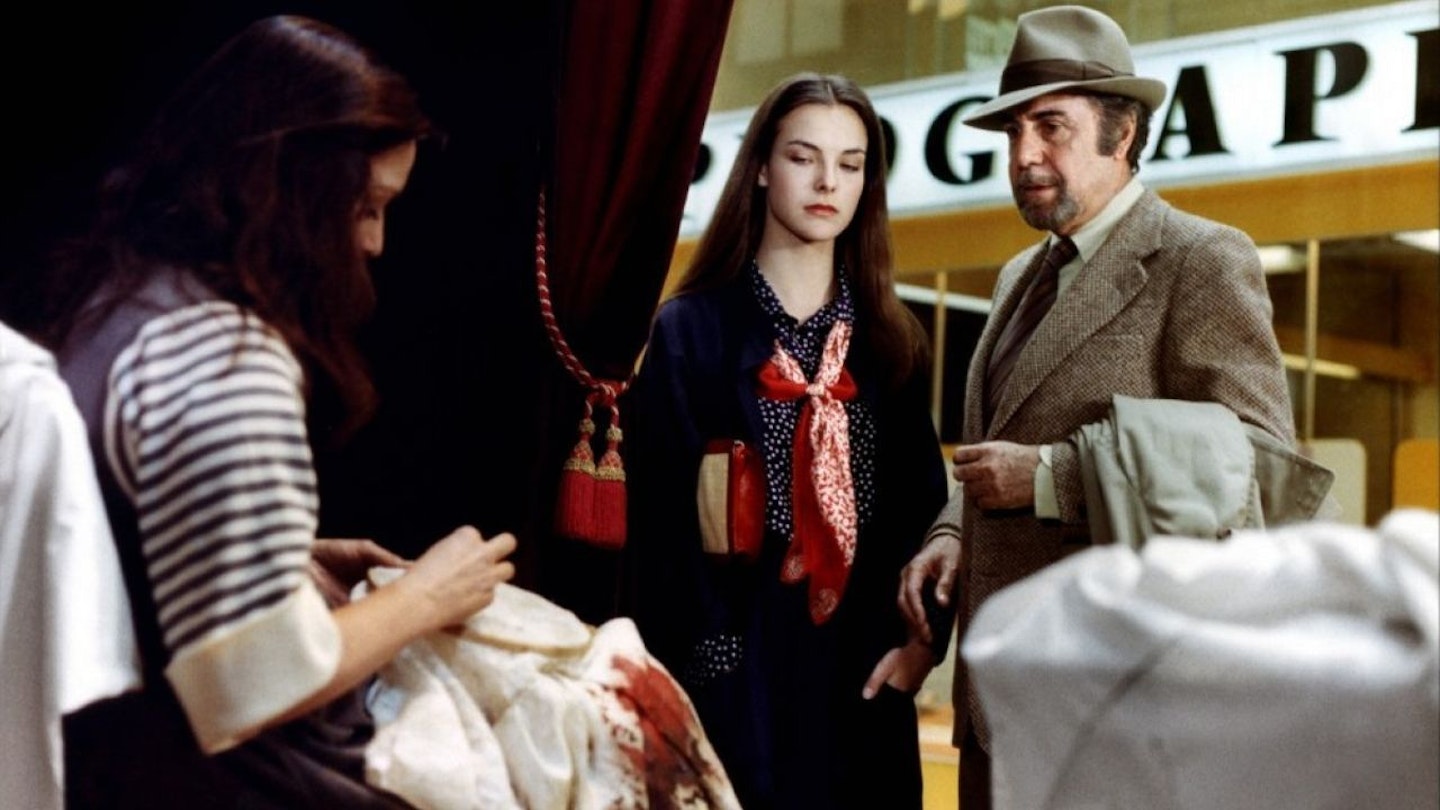Luis Buñuel had a habit of announcing his retirement. But the onset of deafness and diabetes meant that many took the septuagenarian at his word after he completed the satirical triptych of The Milky Way, The Discreet Charm of the Bourgeoisie and The Phantom of Liberty. However, he was soon considering an adaptation of Huysman's Là-Bas, with Gérard Depardieu in a dual role. Yet, ironically, when he did finally embark on a new project (which he had a premonition that he wouldn't finish) it involved two performers playing the same character.
This stunt casting had not been his original intention, however. Buñuel had hoped that Isabelle Adjani would play Conchita, but she was unavailable, and he had started the shoot with Maria Schneider as the `sensual, virginal, demonic little girl'. However, her drug problem and his disappointment with her lacklustre performance resulted in her early dismissal and the hiring of the other two actress that Buñuel had tested, Carole Bouquet and Angela Molina.
It was the perfect swansong motif for cinema's most enduring Surrealist - especially as the pair alternated at random rather than representing the different aspects of Conchita's devious nature - as it not only enabled him to challenge the reality of the screen image, but also to invest the action with a conceptual reality that was unique to cinema.
They were certainly following in august footsteps, as Geraldine Farrar, Conchita Montenegro, Marlene Dietrich and Brigitte Bardot had also headlined adaptations of Pierre Louÿs's short 1898 novel, La Femme et le Pantin.
But while Buñuel insisted that he had been wholly faithful to the text, he had actually chosen to reinterpret certain key elements. Thus, the two suitors were merged as Mathieu, while the Seville setting was abandoned in favour of a transcontinental odyssey that seemed to linked the whole of Europe with concepts that had fascinated Buñuel throughout his entire career - repression and the liberating power of desire; the mockery of taboos; the detestation of tyranny; the interchangeability of reality and dreams; the cruelty of fate; and the barbarism of love. Genius.
